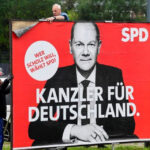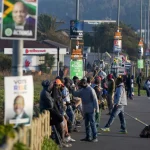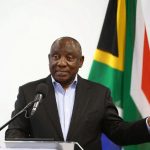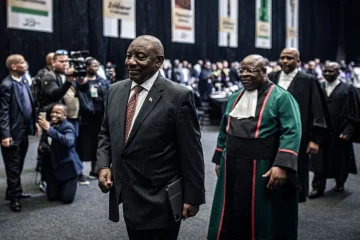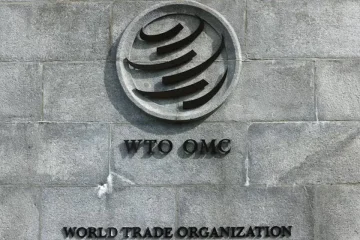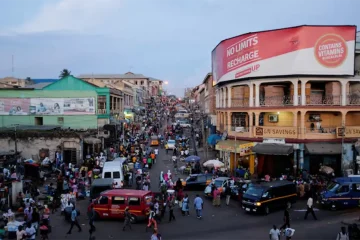EON Investment Management chief investment officer Asief Mohamed believes that the ANC will have to form a coalition with one of the three larger parties: the DA, the EFF or the MK Party.
‘They will most likely have to form a coalition, and it will take time before they agree on one. I doubt that the smaller parties will be enough for them to form a coalition,’ he told Citywire SA during an interview.
Citywire + rated Mohamed said the ANC would probably end up with around 45% because of the higher voter turnout in the major metropolitan areas.
‘The EFF and the MK, which people [investors] are scared about, will probably both get 10%. I expect the DA will reach 25%,’ he added.
The final results released by the Electoral Commission of South Africa’ (IEC) show that the following parties have won the highest votes in the 2024 National and Provincial Elections: ANC – 40%, the DA 22%, the MK Party 14% and the EFF 9.6%.
The first prize is for the ANC and the DA to get into an alliance. That will be good for markets and South Africa,’ Mohamed (pictured below) said.
‘The rand has slightly depreciated [this morning] because of the speculation about who the ANC will form an alliance with,’ he added.
However, Mohamed did not expect the election results to significantly impact the markets because South African economic factors do not drive two-thirds of the local market.
‘It’s more driven by global factors,’ he added.
Mohamed said the critical factor for the local market in future would continue to be load shedding.
Another issue for the future would be who ultimately replaces Cyril Ramaphosa as ANC president.
‘We are concerned about the current deputy president [Paul Mashatile]. There are a lot of question marks about him because of the allegations going around about him. I would be concerned if he becomes the next president,’ he added.
Mohamed said coalition politics were complex.
‘I would expect that the DA would probably enter into an agreement that would be more realistic and achievable. It’s going to be more difficult to enter an agreement with either the EFF or the MK Party that is going to last over a five-year term.
‘If we get upset in the next day or two where the MK or EFF get significantly higher than 10%, say 15% or 20%, then it will get difficult, and the rand will go to 21 rands to the dollar.’
‘I don’t think the ANC will give up key positions. Otherwise, we will go potentially into a negative spiral,’ he added.
Aylett & Co Fund Managers portfolio manager Justin Ritchie:
It was significant that the ANC would lose its majority peacefully.
‘That’s encouraging, and that’s certainly not been the case in many other countries,’ he said.
‘If I look at the numbers, they don’t look different to what I think the consensus was,’ he added.
‘SA equities are cheap, and investors have low expectations priced into current valuations. A lot of capital left the country, both foreign capital and local capital because Regulation 28 changes induced a lot of offshore shifts,’ he said.
‘Any positive news could create quite an outsized reaction and a door for people to return,’ Ritchie added.
He cautioned that coalition governments can be volatile, impacting the markets, especially the rand.
‘As the coalition negotiations take place, I would expect volatility. Coalitions are volatile and introduce a certain amount of uncertainty into the system. Equity markets, in general, do not like uncertainty,’ Ritchie said.
‘We may get a gridlock in government, nothing gets done, and government service is unstable. We saw reasonable progress in solving the country’s problems, such as electricity and logistics.
‘There have been some significant changes made to policy there. The market would view any backtracking on that as negative.’
Richie (pictured below) said Aylett & Co had cash sitting on the sidelines and could use it to take advantage of any volatility from coalition politics.
Momentum Investments head of fixed income
‘It is too early to make a definitive call on market movements. The rand is weaker, and bond yields are higher, but negative global drivers like a poor US Treasury auction and higher EU inflation numbers are driving that. I am not able to say what the impact on asset allocation will be at this point, as we will have to wait for more certainty on the election results.
‘We will also have to wait for more data points before we can make a call on investment performance and when the actual results have been declared. A coalition can also be formed over the next two weeks. Due to the uncertainty of these two events, the range of outcomes for asset classes will be wide. The market will have to digest whether the election and coalition outcomes will be market-friendly or not. SA asset class performance will only then be determined.
‘Portfolio construction will be adjusted to reflect the market view of the risk versus price outcome of the election results and coalition formation. More market-friendly results could mean more [local] capital is allocated to SA asset classes. However, only if investors decide that the market prices of SA assets reflect the political outcome fairly or cheaply will there be an allocation towards those assets.
‘The more critical view could be how foreign investors perceive the election outcome. They are heavily underweight SA assets. A favourable or status quo outcome could bring them back as buyers of SA assets.’
Citadel’s chief economist, Maarten Ackerman
He emphasised the importance of focusing on longer-term investment fundamentals rather than the short-term.
‘Typically, the news around elections will have a short-term impact on asset classes, which can be positive or negative, depending on what the market expects the outcome to be.’
In the run-up to elections, the market priced in the ANC’s proportion of the vote to most likely reach the mid-40s and, therefore, result in a coalition.
He recalled that political events like Nenegate had a massive impact on the rand. However, after a few days, the fundamentals took over again, and investors started focusing on US interest rates or China’s commodity purchases.
‘You could argue the same with the news around Lady R. The market will react in some way [to the election outcome], but thereafter, it comes down to who’s in charge and whether it will make a difference in policy and its execution. That will drive the longer-term fundamentals that determine the longer-term asset allocation.
‘If we see a pro-business coalition, there’s a good chance in the short term that asset classes can run. A much more populist coalition might result in downward pressure on some asset classes.’
Citadel is invested more for a longer-term view.
‘We haven’t made any changes [around] the expected election outcome,’ he said, adding that game-changer results, like a more business-friendly coalition, would probably be considered in longer-term allocations.’
Ackerman believes foreign investors, who had been selling SA assets year to date, particularly bonds and equities, would need to see more certainty before investing in the country again.
‘The one thing that keeps SA attractive is our high interest rates in cash and government bonds, in excess of inflation. So, in terms of real yields, there’s still some sweetener. But foreigners will only tap into that if they know there’s no major risk in paying that interest.’
Ackerman said the election outcome will likely result in ‘more of the same’ in terms of economic growth projections. SA’s less-than-1% growth over the past five years, compared with a population growth of 1.5%, has resulted in high unemployment and social grants.
‘The ANC has battled to execute policy. Therefore, achieving consensus between a coalition of two or more parties and for the alliance to execute policy will likely be even more challenging. Thus, a coalition government is unlikely to boost growth.
‘So for the next five years, there will probably be more of the same until we can start to see a much stronger opposition party playing a bigger role,’ he said.
Ackerman believes the South African Reserve Bank will likely keep rates on hold and continue focusing purely on inflation, which is ‘still quite sticky on the high end’. The US Fed is not cutting rates yet.
A more populous coalition government might mean a change in the bank’s mandate, but ‘if it’s business as usual,’ the bank’s focus should continue to be on managing inflation expectations, he said.
- Brett Silberg is a Risk, Wealth and Employee Benefits Expert.
He can be reached on 084 602 6298 (mobile), 087 802 5751 (call centre), [email protected], http://silbergbrokers.co.za/ or www.linkedin.com/


